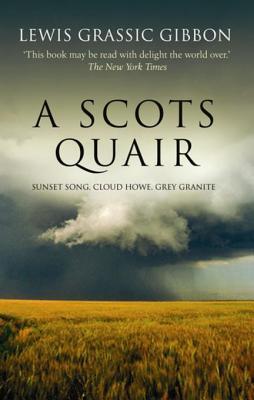What do you think?
Rate this book


385 pages, Kindle Edition
First published January 1, 1934
But she saw herself then in her long green skirt, long under the knee, and her hair wound in its great fair plaits about her head, and her high cheek-bones that caught the light and her mouth that was well enough, her figure was better still; and she knew for one wild passing moment herself both frightened and sorry she should be a woman, she'd never dream things again, she'd live them, the days of dreaming were by; and maybe they had been the best….
Ellison had begun to think himself a gey man in Kinraddie, and maybe one of the gentry. But the bothy billies, the ploughmen and the orra men of the Mains, they'd never a care for gentry except to mock them and on the eve of Ellison's wedding they took him as he was going into his house and took off his breeks and tarred his dowp and the soles of his feet […] and at the term-time he had them sacked, the whole jing-bang of them, so sore affronted had he been.
two Chrises there were that fought for her heart and tormented her. You hated the land and the coarse speak of the folk and learning was brave and fine one day; and the next you'd waken with the peewits crying across the hills, deep and deep, crying in the heart of you and the smell of the earth in your face, almost you'd cry for that, the beauty of it and the sweetness of the Scottish land and skies.
The teas were all finished and Melvin had opened up one of the tents for the selling of drams, folk took a bit dander up to the counter, had a dram, and spoke of the Show and looked out – at the board, the gloaming was green on the hills, purple on the acre-wide blow of heather. There was a little wind coming down, blowing in the hot, red faces of the dancers, you finished up your dram and felt fair kittled up; and went out and made for the board like a hare, damn't! you might be old, but you still could dance, you hoped the mistress had already gone home.
…it came on Chris how strange was the sadness of Scotland's singing, made for the sadness of the land and the sky in dark autumn evenings, the crying of men and women of the land who had seen their lives and loves sink away in the years, things wept for beside the sheep-buchts, remembered at night and in twilight. The gladness and kindness had passed, lived and forgotten, it was Scotland of the mist and rain and the crying sea that made the songs – And Chae cried Let's have another dance, then, it's nearly a quarter to twelve, we must all be off soon as midnight chaps.